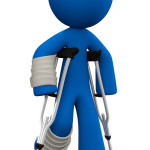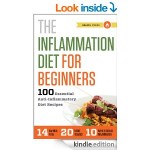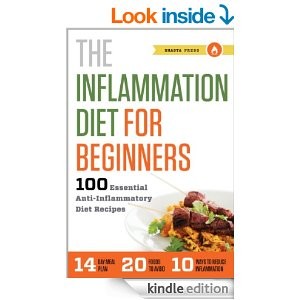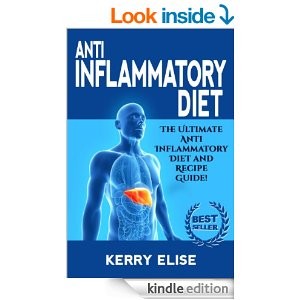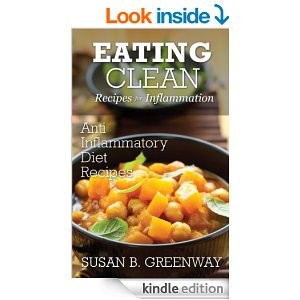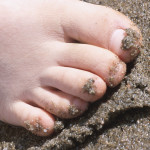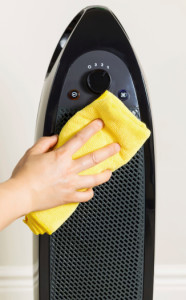 One common health problem that most of us face over a lifetime is a broken bone. Kids fall off things, athletes of all ages break bones, and the elderly, especially those with osteoporosis (with loss of bone density), deal with bone fractures. What to do about them? Of course you should seek immediate medical help after any such event, including whatever the orthopedic surgeon has to offer. But then what? Are there any natural options to help speed healing along?
One common health problem that most of us face over a lifetime is a broken bone. Kids fall off things, athletes of all ages break bones, and the elderly, especially those with osteoporosis (with loss of bone density), deal with bone fractures. What to do about them? Of course you should seek immediate medical help after any such event, including whatever the orthopedic surgeon has to offer. But then what? Are there any natural options to help speed healing along?
The possibilities – which you should always discuss first with your own doctor – include nutritional, herbal, and homeopathic options.
First, ask for a vitamin D blood test to check your levels. Millions of people in the US and worldwide are deficient in vitamin D (e.g., 32% of the population in the US), a necessary natural steroid hormone-like vitamin that we all need to get into a good level to keep bones strong and to help them heal. The recommended form of vitamin D is D3 (cholecalciferol). This versatile vitamin has many other functions in the body – some research suggests that it can lessen risk for certain types of infections like the flu, reduce risks for cancers and perhaps some types of heart disease.
Optimal vitamin D blood levels to aim for are claimed to run 50-70 ng/ml. Some doctors suggest levels closer to 70-80 ng/ml. You don’t risk toxicity from this fat-soluble vitamin until the level runs over 100 ng/ml. While your skin can make some vitamin D, cloudy weather, modern indoor lifestyles and sunscreen lotions make it very hard to make enough on your own.
Recommended daily doses for adults run around 800 IU/day, but many experts report that their patients can need 2000-5000 IU/day to achieve the desired blood levels. Since y0u can monitor the level with simple blood tests, it is worth taking what your individual body might need and re-checking periodically. Be aware that many people may also need vitamin K2 to direct the calcium that they take for bone healing into the bones rather than into the arteries of the cardiovascular system.
A good multivitamin is essential – including B complex vitamins and vitamin C. Be aware that adequate doses of good old vitamin C help you repair collagen, which will help connective tissue recover and do what you need to hold things in place. To help with inflammation, consider omega-3 fatty acids, quercetin, and enzymes such as bromelain.
Obviously take enough calcium (citrate form may be better absorbed, but hydroxyapatite is a great source of calcium and phosphorus needed for making new bone) to provide your bones with necessary building blocks (e.g., 1000 mg/day), along with magnesium in the widely-used ratio of 2 parts calcium to 1 part magnesium (sometimes the glycinate form is less rough on the GI tract), along with trace minerals like silicon. You can usually find products to support bone health nutrition in your local health food stores.
Make sure that your protein intake is good. To heal a fracture, you can need a 10-20 gram/day increase in the amount of protein that you eat. If necessary, supplement with protein powders or liquids. You need proteins to keep muscles strong, but poorer protein status at the time of a fracture can slow down the bone healing process and leave you susceptible to complications.
In the meantime, you broke a bone. How to help bring down tissue swelling and encourage the bone to knit together well (and as fast as possible). Homeopathic remedies may help. While the research on homeopathic Arnica montana is mixed, some people report significant benefit from the remedy for the soft tissue bruising, swelling, and pain. Positive studies have emerged from the plastic surgery research literature, but not for every type of surgery.
For bone fractures in specific, remedies that homeopaths often recommend including Symphytum officinale (e.g., 6C to 30C potencies), Calcarea Phosphorica in lower potencies (e.g. 3X, 6X, etc), and sometimes Eupatorium perfoliatum 30C (Boneset) for severe bone pain. There is a research basis for recommending some of these remedies, especially the Symphytum, for bone healing.
